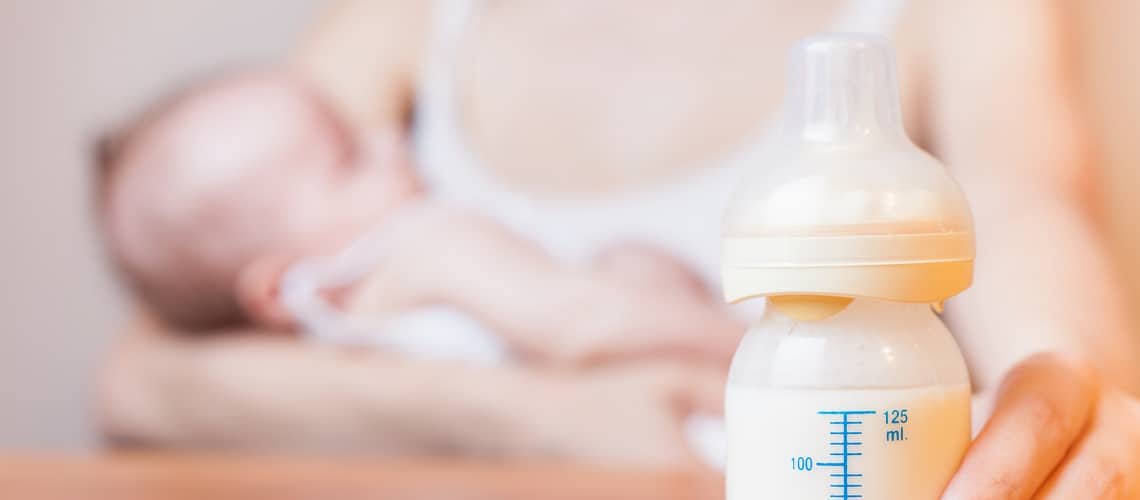
Is my baby getting enough milk?
After giving birth, many mothers worry about whether they will have enough breast milk. If milk is produced, the second concern is that they are afraid of the fact that the baby is sucking enough milk for its nutrition. The breast is not a measuring cup and you never know exactly how many milliliters it will drink. However, the question should not be when the child's breast milk is not enough, but whether the child receives enough nutrition.
Among the signs that the baby receives enough nutrition when breastfeeding is that the baby is satisfied after feeding and does not cry, the breasts should be softer to the touch immediately after breastfeeding and, last but not least, the baby should regularly gain weight and have regular stools (at least 2-3 times per day). However, at the beginning of feeding, it may happen that the child does not poop for several days. If there are no complications and the baby is not dissatisfied, it is not a serious issue. How much weight a newborn should gain is very specific. According to the World Health Organization, a newborn should gain approximately 120 to 250 g per week in the 1st to 2nd month. Weight gain gradually slows down and in the 5th to 6th month it is 35 to 55 g per week, while from the 6th month it is advisable to include complementary foods in breastfed children.
If you are looking for warning signs that would tell you that the baby's breast milk is not enough, you can again monitor the frequency of stool , its weight, observe the color of urine (it should not be dark, it indicates dehydration) and stool (it should have a yellowish color), during while breastfeeding, the child should swallow and not just suck in air . The child must be satisfied after breastfeeding, not tearful and anxious . It should be noted that every day in the baby's diet can be a little different. If it seems to you that he needs to be fed more times on one day and demands to be fed less on the next day, this does not mean anything negative. Simply, sometimes he needs to eat more, other times less. Breastfeed when the baby needs it, don't necessarily stick to the established intervals of breastfeeding every 3 to 4 hours.
Pridať komentár






